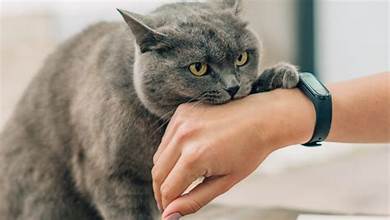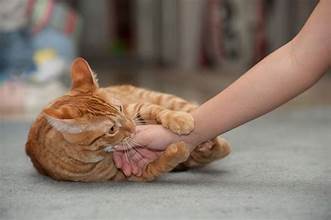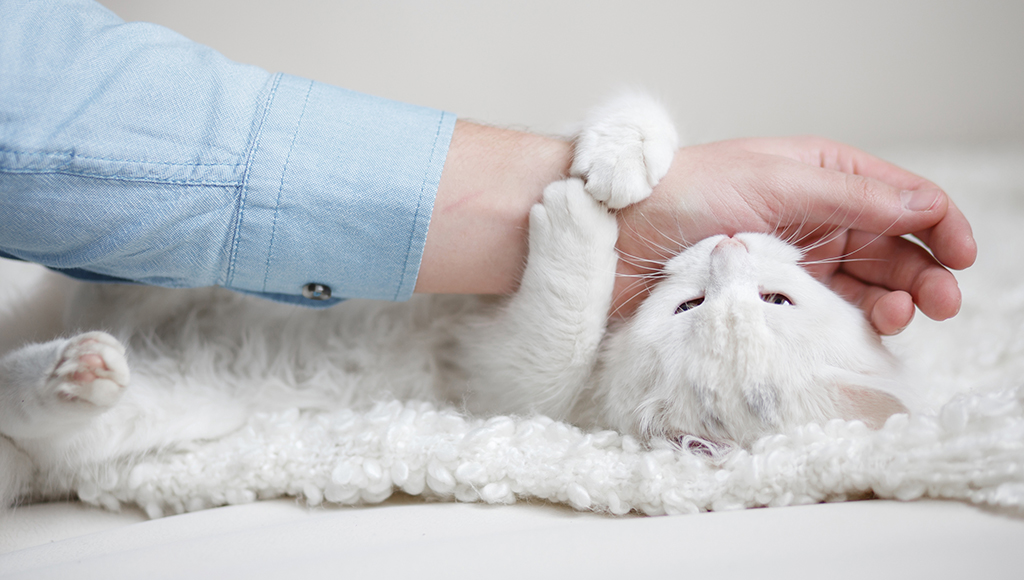Cats are known for their playful nature, but sometimes, that playfulness can turn into biting. While gentle nips are often harmless, excessive biting can concern the cat and its owner. Understanding the reasons behind feline biting behavior is crucial for maintaining a happy and harmonious relationship with your cat.
Common Reasons for Cat Biting
Kittens and young cats often engage in playful biting as part of their natural development. They are exploring their world and learning to interact with their environment and playmates.
- Fear and Anxiety:
When cats feel threatened or anxious, they may resort to biting as a defense mechanism. Common triggers include loud noises, unfamiliar people or animals, and sudden movements.
- Pain:
If your cat is experiencing pain because of an injury or illness, they may become irritable and more prone to biting.
- Redirected Aggression:
Sometimes, cats redirect aggression toward their owners when they cannot express frustration toward the source. For example, a cat may have witnessed a fight outside the window and then lash out at its owner.

- Overstimulation:
During play sessions, cats can become overstimulated, leading to sudden shifts in behavior, including biting and scratching.
- Territoriality:
Cats are territorial by nature. They may bite to defend their space, food, or favorite toys.
Tips for Preventing and Managing Biting Behavior
- Early Socialization:
Early socialization is crucial for kittens. Expose them to various sights, sounds, and experiences to help them become comfortable with new situations.
- Positive Reinforcement:
Reward your cat for appropriate behavior, such as gentle play and affectionate interactions.
- Playtime:
Have regular playtime with your cat using appropriate toys, such as catnip toys, feather wands, and puzzle feeders.

- Avoid Over-stimulation:
Pay attention to your cat’s body language during play. If they start to get overly excited or aggressive, end the play session and allow them to calm down.
- Create a Safe Space:
Provide your cat with a safe space to retreat and feel secure.
- Consult with a Veterinarian:
If biting behavior persists or becomes excessive, talk to your veterinarian to help rule out any medical conditions. A certified feline behaviorist can also provide valuable guidance.
Important Note:
Professional Support:
Your Safety and Your Cat’s Well-being Are Our Priority
Understanding the reasons behind your cat’s biting behavior and implementing appropriate management strategies can create a happy and harmonious living environment for you and your feline friend.





Pingback: Learn About The Beautiful Intelligent & Exotic: Savannah Cat - Positvley Pets